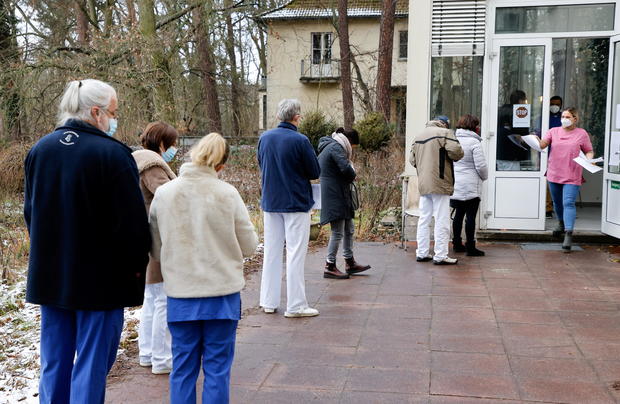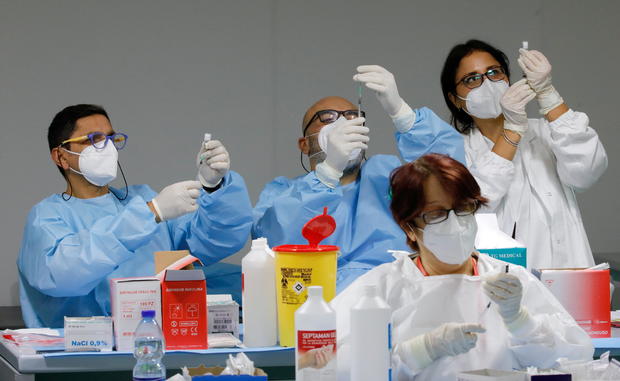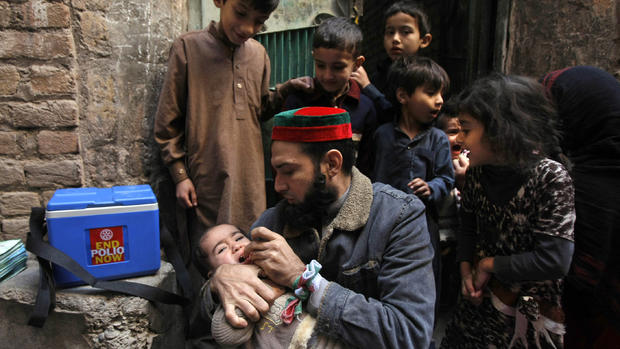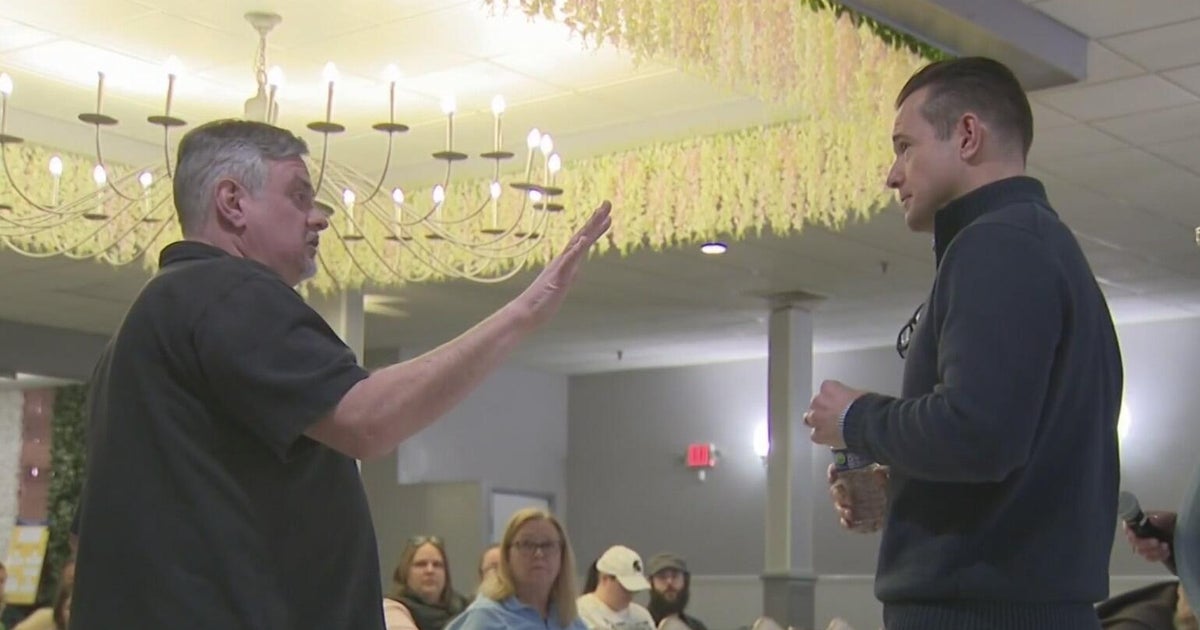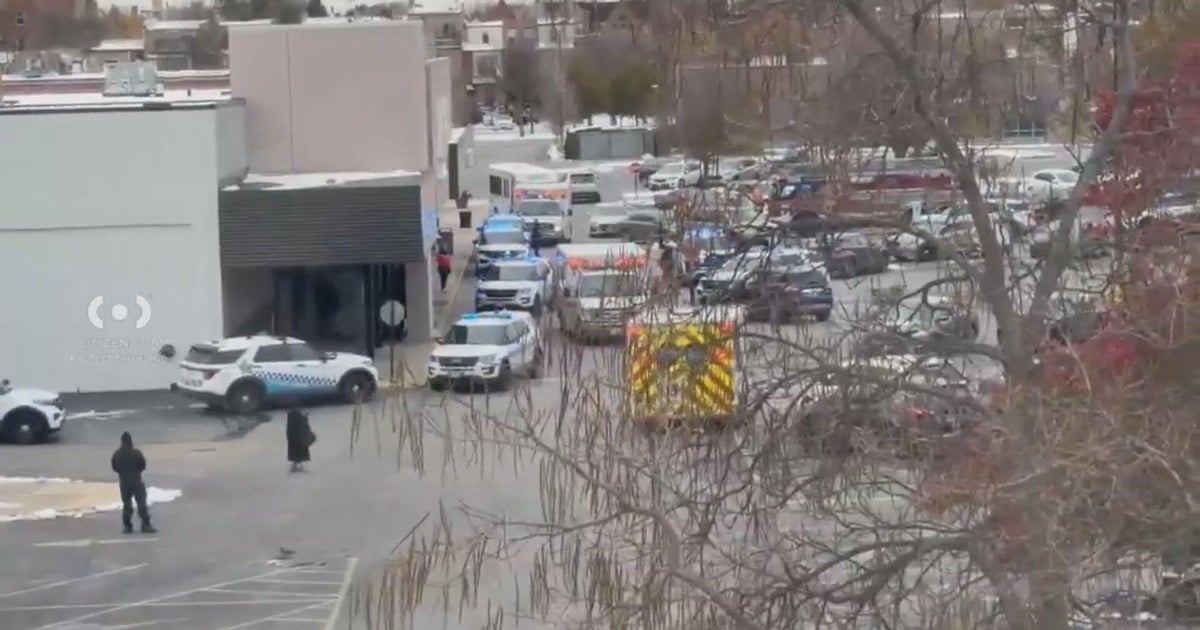How much do people around the world trust the COVID-19 vaccines?
A year after it emerged, COVID-19 has now claimed more than 2 million lives worldwide. Experts have said for much of the last year that the only way to escape the coronavirus' grasp is through widespread vaccination. Weapons to win that war have been and continue to be approved by individual countries' drug regulators in record time.
But the pace — and a host of other unique factors — have left many around the globe with concerns about the vaccines' safety and efficacy.
Safe, effective, and urgent
National regulatory bodies insist corners haven't been cut. They've reviewed and accepted data provided by pharmaceutical companies showing the major vaccines already approved, and those expecting a greenlight within weeks, are between 70% and 95% effective at preventing symptomatic COVID-19 infection.
More importantly, none of the trials carried out on the three vaccines to emerge first, by Pfizer/BioNtech, Moderna and Oxford/AstraZeneca, have shown any significant side effects.
Millions of people have now had doses of all three of those vaccines, and apart from a small number of severe allergic reactions – mostly among those with a history of severe allergies – and the minor, short-term aches and pains associated with many long-established vaccines, the new drugs appear to be well tolerated.
A survey published by the Pew Research Center in early December showed an increase in overall American confidence in the vaccines, with 60% saying they would get vaccinated.
There are divergent views among experts on the best near-term goals for vaccination programs, including the emphasis that should be put on achieving "herd immunity," versus simply giving health care systems room to breathe.
But most experts agree with Dr. Anthony Fauci, who told CBS News in November that the bottom line is simple: "We need to get as many people as possible vaccinated."
Below is a snapshot of sentiments on vaccination in nine countries from CBS News journalists:
U.K.: The roll of race and income
By Haley Ott - A December poll by the Royal Society for Public Health showed that overall, 76% of adults in the U.K. would get a coronavirus vaccine if their doctor recommended it, but that willingness varied significantly based on a person's socio-economic status and ethnicity.
The vast majority of people in office jobs, 84%, said they would get a vaccine, but only 70% of people in "unskilled/semi-skilled manual occupations" or who were unemployed said they would.
79% of White people said they would get a vaccine, compared to 57% of Black, Asian and other non-white people, according to the survey. This is reflects opinions in the U.S., too.
Misinformation about the vaccine online was thought to be fueling some of the mistrust in the South Asian community and among certain religious groups, BBC News has reported. Messages falsely claiming the vaccines contain alcohol or animal products could deter Muslims and Hindus from wanting a shot.
Mosques across the U.K. have joined a campaign organized by the Mosques and Imams National Advisory Board to counter the false narratives, saying they'd use their Friday sermons in January to urge people to get vaccinated.
More than 3 million people have had a first dose of either the Oxford or Pfizer vaccines in the U.K.
France: Growing confidence
By Elaine Cobbe - The number of French people who say they're happy to be vaccinated has been on the rise. At the end of December, a poll found that just 40% were willing to have a COVID-19 vaccine. That reflected a drop from polling in November and over the summer.
But as the vaccine program in France actually got underway — slowly and fraught with bureaucratic problems — surveys showed growing confidence. A poll on January 7 found that 56% of French adults were in favor of getting vaccinated: 26% said they would "definitely" get the vaccine when it was their turn and 30% said they would "probably" get it.
The young appear to be the most reluctant, with more than half of those aged 25-35 consistently saying they don't want a vaccine.
More worrisome for health authorities is the number of health care workers voicing reluctance to being vaccinated has also been high. A poll conducted in the first week of December among nursing home workers found that just 19% were keen to be vaccinated, while 76% said they did not want a vaccine.
For many, however, it's looked more like a "wait and see" approach than a blanket "no." In the December poll, 86% of those against the vaccines said they were worried about potential side effects, especially of the vaccines like Pfizer's and Moderna's which have been developed using new technology.
Seeing the first wave of vaccinations — of nursing home residents and medical staff — go off without any serious side effects may have contributed to the rise in confidence in January.
Germany: Nervous nurses
By Anna Noryskiewicz - Many German health care workers have also been skeptical of the coronavirus vaccines, but one doctor tells CBS News that's likely to change.
A nationwide survey of medical staff, including many intensive care workers, carried out in early December found that 73% of physicians said they wanted to be vaccinated, but among nursing staff, the figure was only around 50%.
Dr. Petra Creutz, a pulmonologist in Berlin, told CBS News she believed it was more a matter of uncertainty than rejection.
"I think it's a common reaction to be reluctant with new drugs and vaccines. But in a few weeks' time, when more people get vaccinated and more explanatory work is done, the willingness to be vaccinated will eventually grow," she predicted.
Germany's leaders and health officials will be hoping she's right, as reluctance, particularly among health workers, can have a serious impact due to their inherent higher risk of contracting the virus.
"It is particularly important that this group is vaccinated," Bavarian state premier Markus Söder said this week, sparking a debate among politicians after suggesting the consideration of compulsory vaccination for medical staff.
Italy: Reluctant health workers
By Chris Livesay - Early last year, Italy was at the epicenter of the pandemic, and it became an early leader among European nations in the drive to inoculate people against the disease. Almost 1 million Italians had been given a first dose of coronavirus vaccine by Friday.
But there is resistance, and Italian officials may be hoping for the kind of growing confidence seen in France and predicted in Germany. Italian health care professionals have shown significant reluctance to get a shot.
According to research published in December by Italy's ANSA news agency, one in five Italian health care workers said they would refuse a vaccine at the time. In some parts of the country that figure was even higher: In the northern Piedmont region, only 10-20% of nursing home workers said they planned to get vaccinated, according to the region's pandemic response unit.
Pope Francis was vaccinated this week, and he called on everyone to follow his example. Speaking to Italian TV on Sunday, he called refusal of the vaccines "suicidal."
"It's an ethical choice, because you are playing with health, life, but you are also playing with the lives of others," he told Italian television.
Russia: Trust in Putin, trust in Sputnik
By Alexandra Odynova - The majority of Russians, 58%, are not ready to get the country's first domestically-made coronavirus vaccine — the only one available in Russia to date — according to the most recent independent survey. Despite the government's insistence that it's safe, many in the country remain wary of the Sputnik V vaccine, which was certified for use in August before Phase-3 human trials even began.
Despite the lack of final data, the government lab that developed Sputnik V says it's 95% effective and causes no major side effects.
The independent Lavada Center's poll, published just after Christmas, found that most of those willing to get the vaccine were supporters of President Vladimir Putin. One of Putin's daughters was said to have received the Sputnik V vaccine before it was even approved, but the 68-year-old president hasn't received a shot yet himself.
"The overwhelming majority of the president's opponents are not ready to get vaccinated," noted the Lavada Center.
Only 38% of the overall respondents to the survey said they were willing to get the shot. About 30% said they wanted to wait at least until trials on the vaccine were completed. Only 10% said they opposed vaccines in general, while 12% of the respondents said they saw no reason to get vaccinated against COVID-19.
Last month, Kremlin spokesman Dmitry Peskov dismissed suggestions of a link between Putin not getting vaccinated and the low public confidence in Sputnik V.
"We don't see any connection here," Peskov told reporters. Putin said months ago that he was planning to get immunized. Sputnik V's developers say more than 1.5 million people in Russia have received the vaccine to date.
Jordan: Royals and refugees
By Amjad Tadros - Jordan launched its national vaccination campaign on Wednesday, and it was the first country to specifically include refugees in its COVID-19 inoculation drive.
But national uptake hasn't been enthusiastic off the starting block: Some 6 million people are eligible for inoculation in the first stage, including the elderly, people with chronic diseases, and medical workers. Registration was opened on December 24, but as of this week, only about 250,000 Jordanians had signed up for a shot.
"We call on people to come to our centers to take the doses," Wael Hayajneh, a senior Jordanian health official, told reporters. To encourage vaccinations, Jordan's King Abdullah II, along with his 73-year-old uncle Prince Hassan and his eldest son Crown Prince Hussein, were shown on state television getting their first shots this week.
Minister of Health Dr. Natheer Obeidat told reporters that he hopes that the nationwide campaign will reach between 20% and 25% of the country's citizens in the coming months.
Jordan is home to some 750,00 Syrian refugees, and that population has been hit by the coronavirus. The United Nations refugee agency's representative in Jordan, Dominik Bartsch, told CBS News that "the first few refugees who have the same medical priorities as their Jordanian brothers and sisters were included in that very first round of vaccination."
At least 43 refugees were among those vaccinated this week.
Japan: History of rumors and mistrust
By Lucy Craft - Compared to the rush elsewhere to get shots into arms, Japan's tortoise-like approach to vaccination might seem incomprehensible. Japan's first round of vaccinations, using the Pfizer vaccine, is still more than a month away.
Public health officials here are under unusual pressure to reassure the public that COVID-19 vaccines are safe. Japan, according to a recent study in The Lancet medical journal, is among the world's most vaccine-wary nations in general, and consequently has some of the highest rates of vaccine-preventable disease in the world.
There was a marked swerve toward vaccine hesitancy in the early 1990s, when reports linked the measles, mumps and rubella vaccine (MMR) — without any definitive data — to cases of aseptic meningitis.
History repeated itself in 2013, when anecdotal reports claimed the HPV vaccine was causing serious side effects, including one young woman who said she was left in a wheelchair by it. Researchers in Japan and Europe confirmed the vaccine's safety, but the damage was done.
HPV vaccination rates dropped from 70% to less than 1%. That drop is now blamed for 5,700 needless cervical cancer deaths.
Sensationalized coverage of purported side effects, and what The Lancet describes as a passive government vaccination policy, have nurtured public suspicions.
A recent poll by national broadcaster NHK showed 36% of Japanese wouldn't take a COVID-19 vaccine. That's not remarkably low trust, but public health officials will be incredibly alert to any unvetted reports of "side effects" sparking another media-fueled panic.
India: Some convincing to do
By Arshad R. Zargar - India's mass-vaccination drive kicks off on Saturday. It's using a domestically produced stock of the Oxford/AstraZeneca vaccine, and another Indian-developed drug.
"Both the vaccines have been authorized for emergency use and there should be no doubt about their safety. They have been tested on thousands of people and side-effects are negligible," said Dr. V.K. Paul, of the Indian government's coronavirus and vaccines taskforce.
But not everyone is convinced.
A survey by public engagement social media platform Local Circles earlier this month found 69% of Indians said they wouldn't take a coronavirus vaccine, or would at least wait for months before deciding to get one. Only 26% of respondents said they would get a vaccine shot as soon as it becomes available.
Delhi-based marketing professional Rupali Dhanda, who has a masters in biochemistry, told CBS News she wasn't ready yet, arguing that there's "not enough research" yet on the vaccines.
Delhi hospitality worker Ravi Kumar said he trusts the vaccines "somewhat," but not the government's vaccination program.
"I would prefer to buy the vaccine on the market when it's available," he said, explaining that he lost trust in the government's health care system when he caught the coronavirus last year, but had six tests with different results. "It was like a joke," he said.
Epidemiologist Ramanan Laxminarayan, director of the Washington-based Center for Disease Dynamics, Economics and Policy (CDDEP), told CBS News that "attitudes towards the COVID vaccine will likely change a lot in coming months, based on any side effects and the speed and efficiency of the rollout."
Pakistan: Can't even beat polio
By Imtiaz Tyab - Pakistan's government has pinned its hopes of inoculating the nation's 230 million-plus citizens with a coronavirus vaccine created by a Chinese company. Officials say the CanSinoBio vaccine is near the end of Phase-3 human trials in Pakistan and has shown considerable promise.
The South Asian nation is one of seven countries testing the Chinese vaccine, but a recent poll conducted by Gallup Pakistan showed 37% of Pakistanis wouldn't get a COVID-19 vaccine when it's available.
Pakistan suffers from extreme poverty, rampant corruption, and has a tiny health budget. It's struggled to contain the virus largely because hospital space is limited and many areas only have rudimentary health care facilities.
But it's the nation's deep mistrust of vaccines causing the most concern. For years, Pakistan's efforts to wipe out polio have been thwarted largely due to public fear of foreign vaccines.
These "anti-vaxx" sentiments have been inflamed by tribal leaders and religious clerics claiming the polio drops are part of a Western plot to sterilize Muslims.
Today, Pakistan and neighboring Afghanistan remain the only two countries where polio hasn't been eradicated.
The deep-rooted mistrust has, for years, seen dozens of people killed in attacks on polio vaccination teams, including an attack this week.
The vaccine conspiracy theories only got worse after a Pakistani doctor was accused of running a fake vaccination campaign to help the C.I.A. track down Osama bin Laden.
While the dangers of polio have been well known for decades, COVID-19 is a new disease, and the government's weak messaging around the virus have likely made things worse.
Prime Minister Imran Khan ordered a national lockdown early in the pandemic, but quickly abandoned it as the virus spread widely in the country.
Pakistan has officially recorded a total of over 423,000 coronavirus infections and close to 8,500 deaths. But experts say the real toll is likely much higher, because the government is only doing a fraction of the testing it should.
